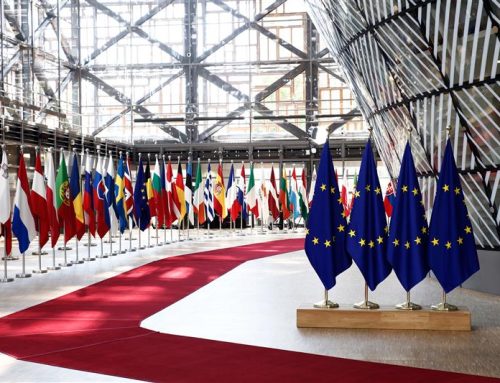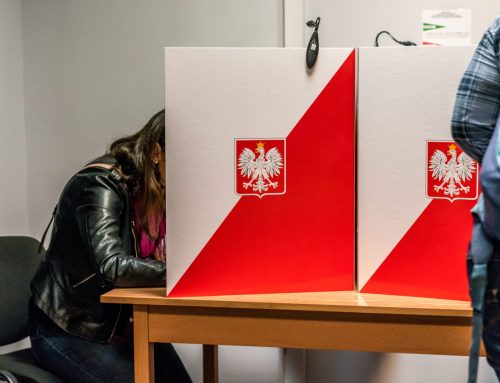Our Take
The United States should take a more proactive stance in building an information ecosystem that works in the interests of democracies, Director Laura Rosenberger argued in Foreign Affairs.
While the new coronavirus funding should help with election preparations, more will be needed to ensure that states and localities can adequately protect against the virus and foreign adversaries alike, Fellow for Elections Integrity David Levine argued in an ASD blog post.
Hamilton 2.0 Analysis
Russia Toplines
For the thirteenth consecutive week, coronavirus coverage dominated the Russian media ecosystem last week, though to a slightly lesser extent than in previous weeks. As usual, much of this output consisted of basic news updates on the pandemic. One notable coronavirus theme across platforms involved criticism of various U.S. media outlets’ coverage of the pandemic. In non-coronavirus messaging, posts commemorating Soviet cosmonaut Yuri Gagarin and Cosmonautics Day (April 12) saw a relatively substantial push on Twitter, primarily from government accounts.
China Toplines
Coronavirus-related coverage continued to dominate Chinese official media outlets last week, with emphasis shifting from China’s recovery efforts to more intense coverage of rising case numbers in the United States and the United Kingdom. The most engaged-with communication from state media outlets and diplomatic/government accounts emphasized Chinese aid provided to countries in Europe, Asia, and Africa. Overall engagement with China’s official media ecosystem on Twitter was down last week, after China’s ambassador in Brazil wound down a Twitter tit-for-tat with President Bolsonaro, and other official outlets stepped back from spreading controversial conspiracy theories that had become commonplace in Chinese messaging in previous weeks.
Read more of the analysis here.
News and Commentary
Apple rolls out new tool for mapping the spread of coronavirus, joining Google and Facebook: Last Tuesday, Apple launched a new tool that collects anonymous data from those using its Maps services to track people’s adherence to social distancing policies. Apple’s tool functions similarly to Google’s new website that draws on anonymous location data to gauge the effectiveness of social distancing, helping governments and health-care professionals combat the virus. Earlier this month, Facebook also rolled out new maps for researchers to examine mobility patterns using aggregated data to protect privacy. Director Laura Rosenberger has warned that the use of surveillance technology for managing the pandemic could become a more permanent feature of society if appropriate safeguards are not put in place on the front end. Those technologies, she argued, could lead to a weakening of democracy. (CNBC, Apple, Google, The Washington Post, Facebook, Bush Center)
Iranian-linked group spreads disinformation on Facebook, Twitter blaming the United States for coronavirus: Since late February, a group with close ties to the Iranian government has been spreading disinformation on Twitter and Facebook that promotes Iranian and Chinese interests, according to a new report by social media mapping firm Graphika. The propaganda group, known as the International Union of Virtual Media, seeded articles, videos, and memes accusing the United States of creating the coronavirus in order to remain a dominant global power. Other narratives praised the Iranian response to the outbreak and critiqued U.S. sanctions against Iran, which allegedly hurt the country’s ability to combat the virus. Fellow for the Middle East Ariane Tabatabai has argued that Iran is attempting to shift blame away from its own inaction in preventing the spread of the virus to portray the United States as the irresponsible party, which also helps to widen the gulf between the United States and its Western allies. (Forbes, Graphika, Tech Crunch, CyberScoop, The Verge, Twitter)
In Case You Missed It
- Reddit announced that it will publicly disclose its political advertisers in a new transparency hub, including how much the advertisers spend on campaigns and how they target online users.
- Roughly one in three social media users across the United States, UK, Spain, Germany, Argentina, and South Korea have seen misleading or false information about the coronavirus, according to a new report by the Reuters Institute for the Study of Journalism at Oxford University.
- The Departments of Homeland Security, State, Treasury, and the Federal Bureau of Investigation issued an advisory alert about the cyber threat posed by North Korea, highlighting its “capability to conduct disruptive or destructive cyberattacks” against U.S. critical infrastructure.
- Following last week’s cyberattacks against the Czech Republic’s healthcare sector, Secretary of State Mike Pompeo warned that the United States has “zero tolerance for malicious cyber activity” aimed at undermining U.S. partners’ efforts to manage the global pandemic.
- Russia is again urging the UN General Assembly to approve a resolution to “eliminate the use of unilateral coercive economic measures” that allegedly have a negative impact on countries’ ability to respond to the coronavirus pandemic.
ASD in the News
Democracy Talks: COVID-19, Authoritarianism, and Democracy, and George W. Bush Presidential Center. Interview with Director Laura Rosenberger
China pushing coronavirus disinformation, U.S. intelligence officials say, NBC Nightly News. Comments by Rosenberger
Iranian boats come ‘dangerously’ close to US navy warships, The Guardian. Comments by Fellow for the Middle East Ariane Tabatabai
Quote of the Week
“The most pernicious disinformation that we have to contend with is the disinformation that is sowing global … mistrust and confusion. These are messages that are endangering global health because they’re undermining the efforts of governments, of health agencies and of organizations that are in charge of disseminating accurate information about the virus to the public.”
- U.S. Deputy Assistant Secretary of Defense for Russia, Ukraine and Eurasia Laura Cooper describing the Defense Department’s efforts to curb foreign disinformation campaigns related to the coronavirus (April 13, 2020)
The views expressed in GMF publications and commentary are the views of the author alone.



